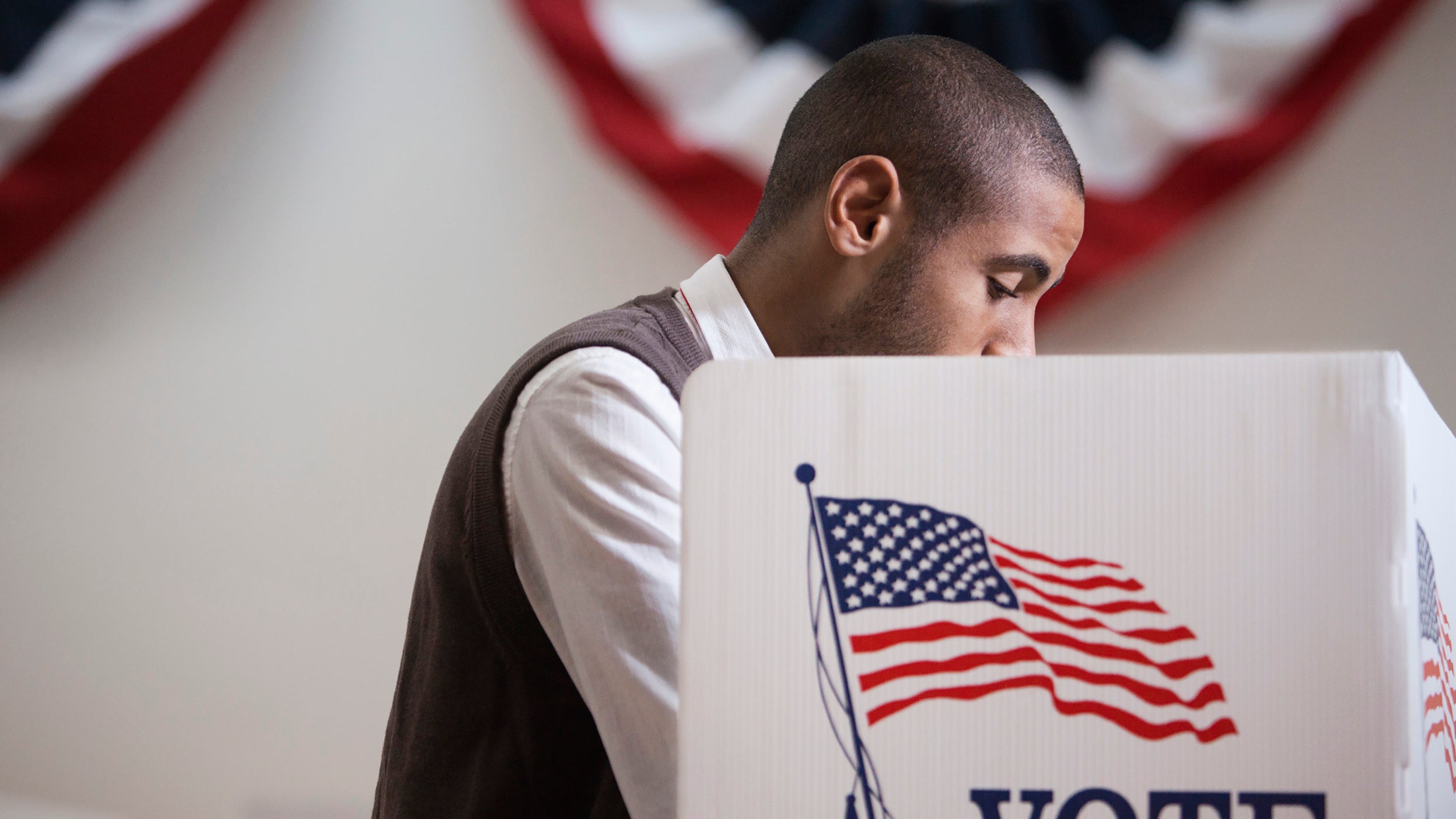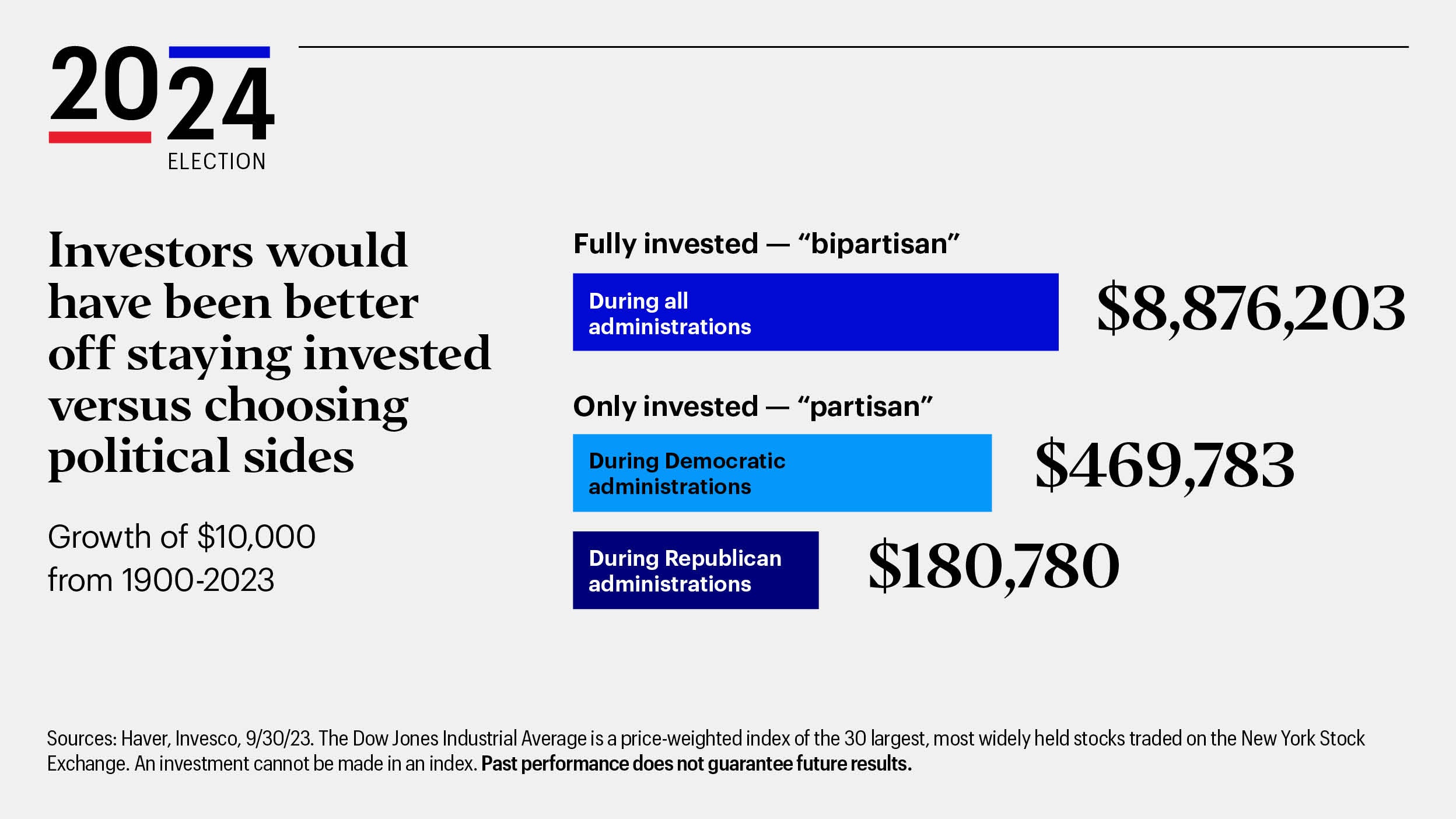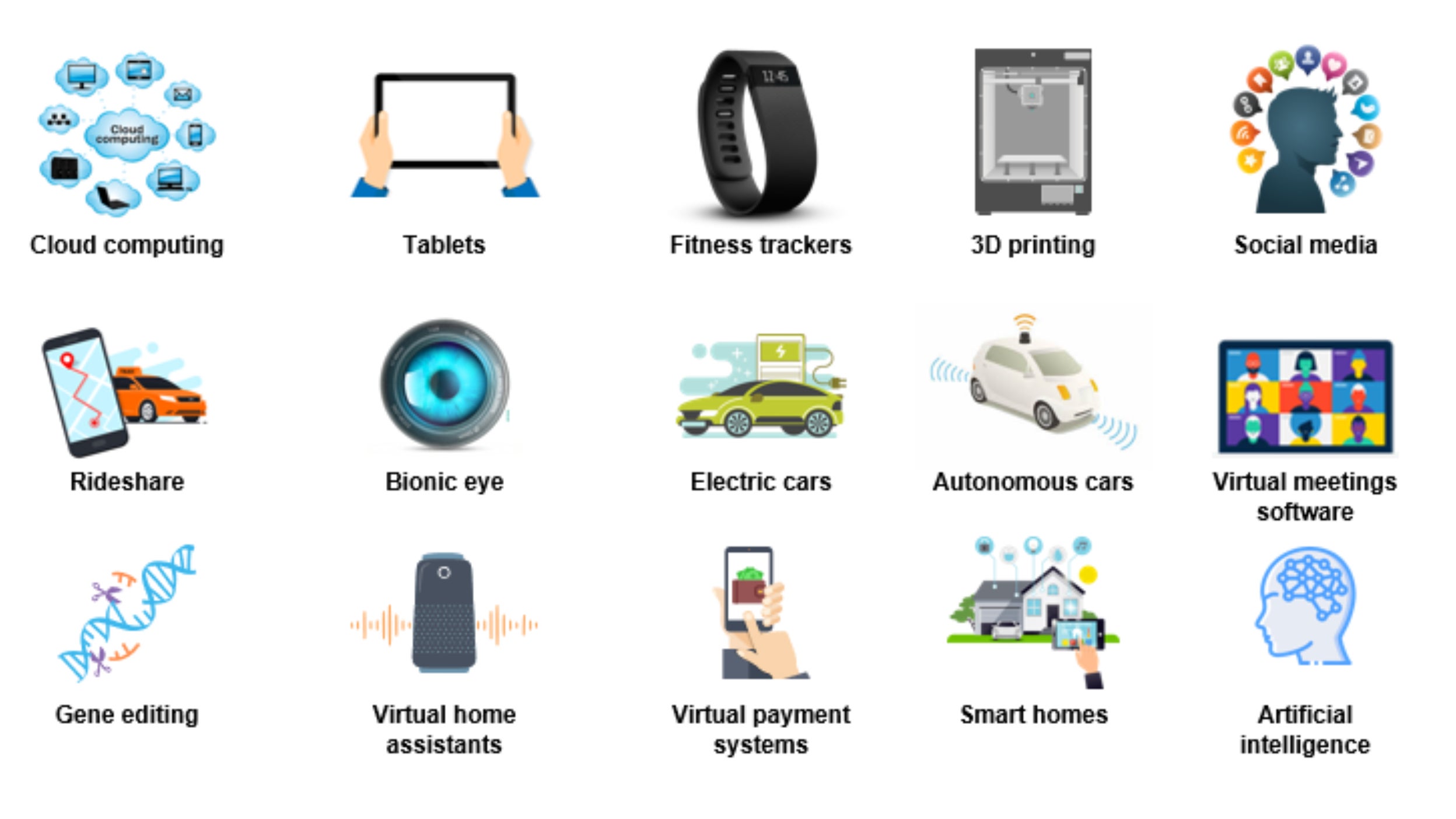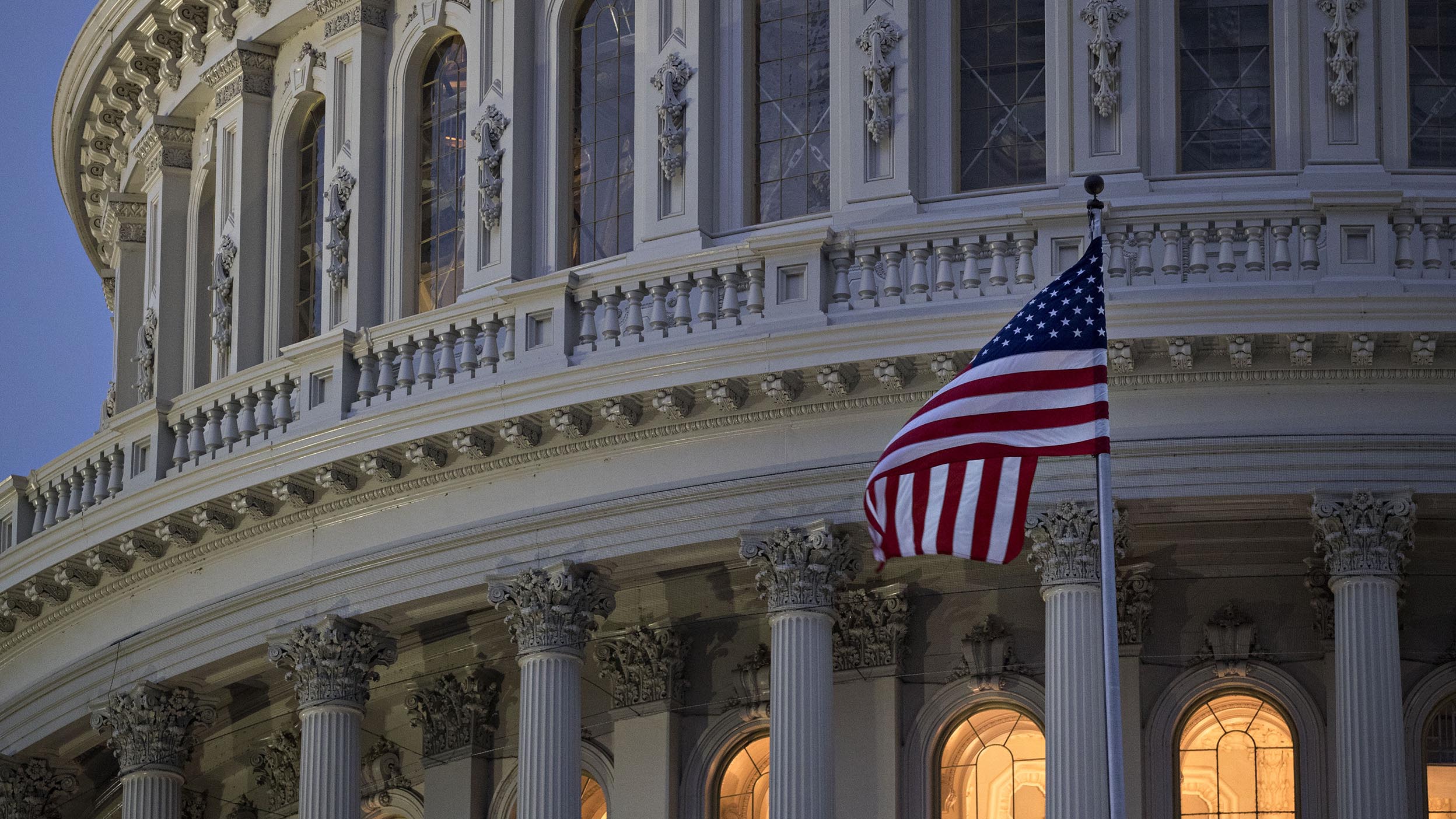
Markets and Economy Above the Noise: Policy uncertainty persists
The challenges of the current investment environment are well documented, so maybe it’s more interesting to talk about what could go right.

US presidential elections haven’t historically affected markets or the economy, despite who or which party wins.
Staying invested during Democratic and Republican administrations did better than investing only during single-party rule.
Monetary policy has had a greater market impact. Presidents historically were either helped or hurt by Federal Reserve actions.
The 2024 US presidential election is less than a year away. As a market strategist, I’m often asked what it may mean for financial markets if a Republican or Democrat is elected. My answer is, “People care about elections. Markets don’t.” Historically, who’s president and which party is in power hasn’t impacted market performance, the economy, or the government. Here’s why.
Neither party can claim superior economic or market performance. The US stock market posted positive returns across most administrations, with the rare exceptions of presidencies that ended in deep recessions. The S&P® 500 Index has delivered an average annual return of approximately 10% since it started in 1957 through both Democratic and Republican administrations.1 The US economy also expanded around 3% during that period.2
The stock market’s return was negative for a presidential administration only when the country was in a financial crisis (2008) or experiencing a stagflationary spiral (1973).3
Hypothetically, the best-performing US portfolio during the past 123 years was the “bipartisan” one that stayed fully invested during both Democratic and Republican administrations. A “partisan” portfolio, only invested during single-party rule, underperformed by millions of dollars. (See graphic below.) The different results are, in part, because of the US stock market’s consistent rise even during two world wars and major financial crises (the Great Depression and the 2008-2009 Global Financial Crisis). The more time investors spent participating in markets, the better their investments did.

Investors are often concerned that elected officials will radically re-engineer the economy. In fact, the composition of the US economy has been consistent for decades. Even single-party rule periods didn’t result in significant change. The percentage of “substantive” bills by Congressional term hasn’t increased when one party controlled the executive and legislative branches.4
US federal spending has outpaced taxes and other sources of government revenue in most years and across most administrations.5 No party can claim fiscal responsibility. It hasn’t been a significant issue for a variety of reasons, including the US having the world’s largest reserve currency and nominal economic growth outpacing the interest expense as a percent of gross domestic product (GDP). Currently, interest outlays as a percent of GDP are below 2%, a low bar for growth to surpass.5
For all the focus on the executive branch, I’d argue that it’s US monetary policy that matters more. The old adage holds true: Don’t fight the Fed. Historically, presidents have been hurt or helped by monetary policy conditions. For instance, both Presidents Reagan and Clinton benefited from consistently falling interest rates. Both Presidents George H.W. Bush and George W. Bush were hurt by Fed tightening, an inverted yield curve, and a recession. President Obama benefitted from a benign rate environment (minus a brief moment in 2015-2016) during his term, and President Trump was the unfortunate recipient of tighter policy during his first two years.6
Investors don’t have to love what is going on in Washington, DC, to prosper in the markets. In fact, the S&P 500 historically performed the best when the president’s approval rating was in the low range — between 35 and 50. 7 That means the market had delivered some of its best returns during periods when half or more of the country didn’t approve of the job the current administration was doing! Still, it’s hard to discern any direct relationship between a president’s popularity, the health of the US economy, and the performance of financial markets.
Investors should be less interested in politics and more interested in private-sector business leaders who are going to harness artificial intelligence and robotics. They may be able to help cure debilitating diseases, evolve the nation’s energy sources, and develop new technologies and industries that aren’t even on the radar. History suggests that innovations — and investment opportunities — will continue irrespective of who wins a presidential election. For instance, since the 2008 election, many innovations were introduced during the tenure of both Democratic and Republican presidents. (See graphic below.)

For illustrative purposes only.
Sources: Bloomberg L.P., 11/22/23. Stock market performance is defined by the S&P 500 Index total return from 3/4/1957 to 11/22/23. The S&P 500® Index is a market-capitalization-weighted index of the 500 largest domestic US stocks. An investment cannot be made in an index. Past performance does not guarantee future results.
Sources: Haver, Invesco, 9/30/23. Real GDP data is from 12/31/2016‒6/30/2023 because GDP is reported with a lag. Gross domestic product (GDP) is a broad indicator of a region’s economic activity, measuring the monetary value of all the finished goods and services produced in that region over a specified period of time.
Source: Bloomberg L.P., 11/22/23. Financial crisis was George W. Bush presidential term from 1/19/2001-1/20/2009. Stagflationary crisis was Richard Nixon presidential term from 1/20/1969-08/08/1974.
Sources: US Bureau of Economic Analysis, 9/30/23 and PEW Research Center, 6/30/23. Substantive bills are defined by PEW as those that have some real-world impact, such as spending bills and setting policy, as opposed to ceremonial bills, which are intended to recognize an individual, group, or cause.
Source: US Department of Treasury, 6/30/23. Gross domestic product (GDP) is a broad indicator of a region’s economic activity, measuring the monetary value of all the finished goods and services produced in that region over a specified period of time.
Sources: Goldman Sachs, Bloomberg L.P., 9/30/23.
Sources: Bloomberg, L.P. and Gallup, 9/30/23. S&P 500 market returns from 1/1/1961 – 9/30/23. An investment cannot be made in an index. Past performance does not guarantee future results

The challenges of the current investment environment are well documented, so maybe it’s more interesting to talk about what could go right.

While the setup for markets was good coming into 2025, they’ve struggled as investors assess ongoing changes to the US policy approach.

We discuss the future of US inflation, the outperformance of European stocks, the potential impact of new tariffs, and the independence of the Federal Reserve in this month’s column.
Important information
NA3245068
Header image: Hiraman/Getty
Some references are U.S. centric and may not apply to Canada.
An inverted yield curve is one in which shorter-term bonds have a higher yield than longer-term bonds of the same credit quality. In a normal yield curve, longer-term bonds have a higher yield.
All investing involves risk, including the risk of loss.
In general, stock values fluctuate, sometimes widely, in response to activities specific to the company as well as general market, economic and political conditions.
The opinions referenced are those of the author as of Nov. 28, 2023, are based on current market conditions, and are subject to change without notice. These opinions may differ from those of other Invesco investment professionals. These comments should not be construed as recommendations but as an illustration of broader themes. Forward-looking statements are not guarantees of future results. They involve risks, uncertainties, and assumptions; there can be no assurance that actual results will not differ materially from expectations.
The document contains general information only and doesn’t take into account individual objectives, taxation position, or financial needs or constitute a recommendation of the suitability of any investment strategy for a particular investor. Investors should consult a financial professional before making any investment decisions. Past performance does not guarantee future results.
This link takes you to a site not affiliated with Invesco. The site is for informational purposes only. Invesco does not guarantee nor take any responsibility for any of the content.